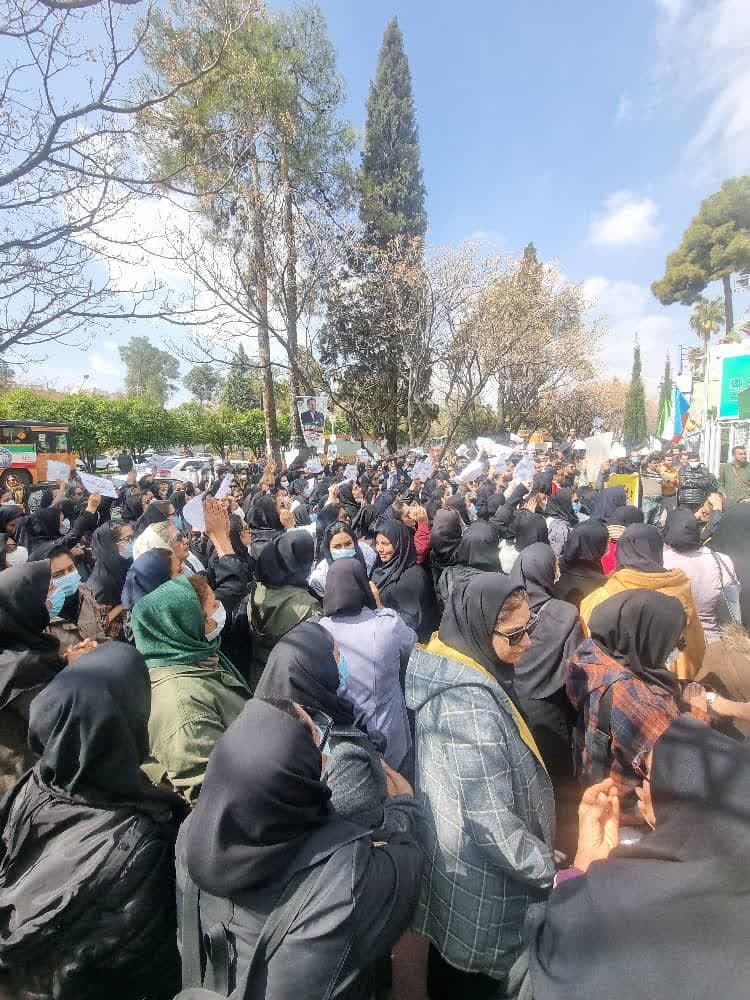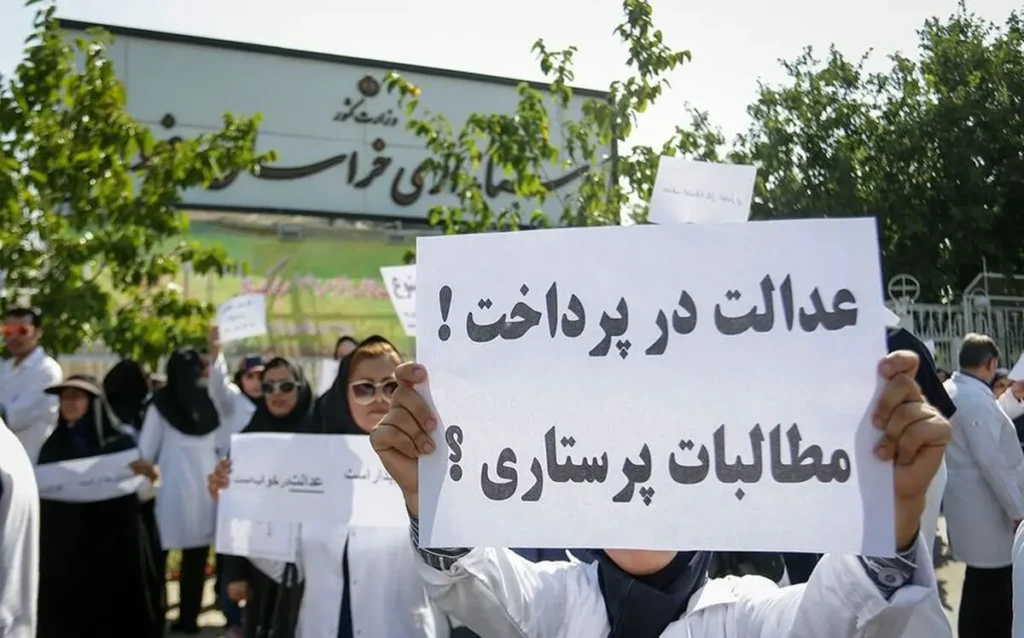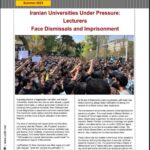
As we approach the period in which the budgets are set and workers’ wages determined for the Iranian calendar year 1403 (2024-2025), the situation for nurses in Iran is grim.
While the budget for the Islamic Republic of Iran Broadcasting (IRIB) has increased by 43%, there is apparently no budget for the payment of decent and proper nurses’ salaries.
Despite the governing regime’s opposition to increasing the national minimum wage in line with the rate of inflation on 1 February along with the labour minister’s attack on the workers’ movement and his insistence that wage levels would be set regionally [rather than a national minimum wage] on 2 February, the widespread and almost daily protests of workers in Iran continue.
In recent months, nurses have waged an admirable and sustained struggle for wages above the poverty line; job security; the implementation of special bonuses and proper nursing services tariffs; against compulsory overtime; rejecting the regime’s attempts to create divisions among them; as well as the hiring of at least 100,000 urgently needed nurses, and more.
On 11 January, the Secretary General of the House of Nurses, Sharifi-Moghaddam, referring to the regime’s blatant attempts to sow discord within the sector, stated: “They [the authorities] have set many conditions; for example, a nurse must work a full shift and undertake 80 hours of overtime, and not take sick leave or otherwise be absent from their post, and so on. Furthermore, the situation has arisen whereby the [nurses’] bonus can vary from nothing to 10 million tomans (166-200 USD).”
In light of the nurses’ petitions to the Administrative Court of Justice to have compulsory overtime scrapped and to obtain a ruling in their favour, Sharifi-Moghaddam added: “Despite the legal requirement for the agreement of both parties for overtime work and the [according] ruling of the Administrative Court of Justice, if a nurse is unwilling to do overtime, they are marked absent […] This results in the nurse being sent before the disciplinary board and subsequently sanctioned/punished […] This happens extensively.”
To make matters even worse, the corrupt and scheming regime sets the rate of pay for the forced overtime much lower than that for the standard contracted hours. Thus, a nurse will typically be coerced into undertaking 150 hours of overtime for between 2-3 million tomans, working at a just 16-20 thousand tomans per hour (25 to 30 US cents per hour).
On Wednesday 10 January, in protest against compulsory overtime, nurses launched an online campaign to raise awareness of their situation as well as garner support from the wider public and sent open letters of protest to officials making clear that they are “not willing to work overtime with unfair wages.”
In order to reduce the glaring and growing gap between the salaries of doctors and nurses for equivalent work, the tariff of nursing services was approved way back in 2007. However, after 15 years of little to no progress on the matter, one nurse, Mohammadzadeh, said: “Nowhere in the world is the income gap between doctors and nurses this large.”
The situation of nurses in Iran is dire, and they are fighting for their basic rights. The regime is trying to suppress their voices and divide them, but the nurses are determined to continue their struggle regardless.
Here are some of the key highlights of the report:
- The government is increasing the budget for IRIB (the Islamic Republic of Iran Broadcasting) by 43%, but there is no budget allocation to improve nurses’ salaries, which in effect equate to poverty wages.
- The government has opposed increasing the national minimum wage to compensate for the spiralling rate of inflation in Iran.
- Nurses are fighting for wages above the poverty line; job security; the implementation of special bonuses and proper nursing services tariffs; against compulsory overtime; rejecting the regime’s attempts to create divisions among them; as well as the hiring of at least 100,000 urgently needed nurses, and more.
- The regime is trying to create divisions among nurses by setting unfair conditions for overtime work.
- The regime is paying nurses very low wages for the enforced overtime work.
- The gap between the pay of doctors and nurses for commensurate work remains very wide in Iran.
- The nurses are determined to continue their struggle for basic rights.
The situation of nurses in Iran is a serious problem that needs to be addressed. The government should respect the rights of nurses and provide them with fair wages and working conditions.














 Posted in
Posted in 











